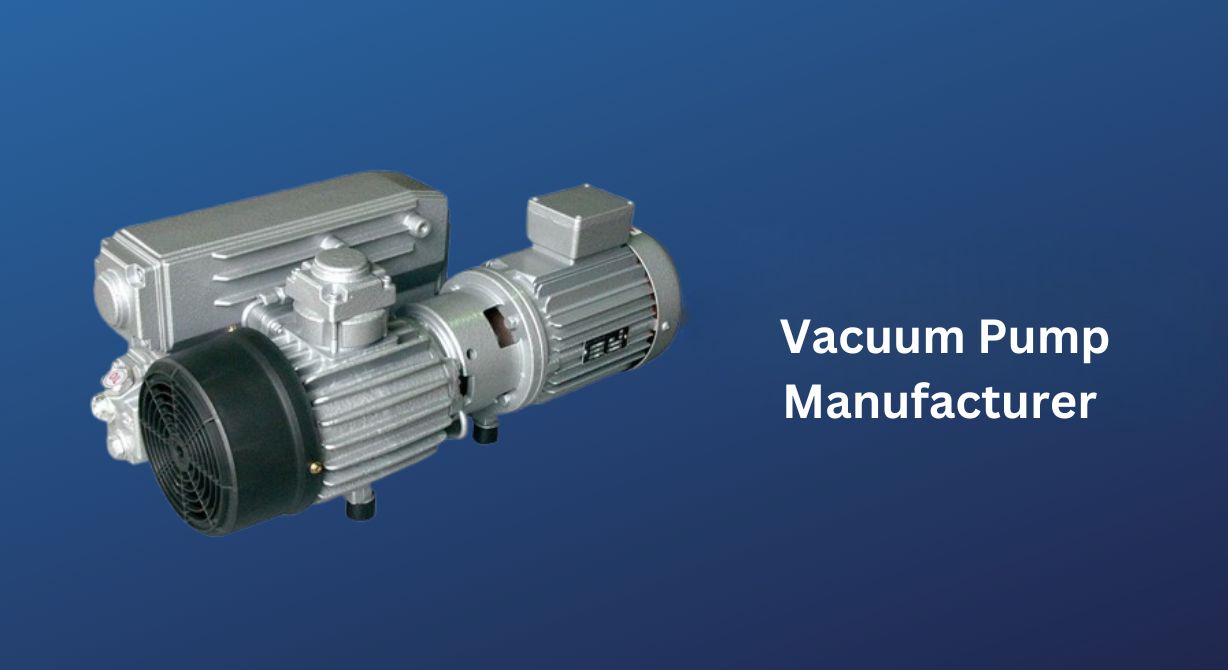Vacuum Pump Manufacturer
Vacuum Pump Manufacturer: Key Considerations for Choosing the Right Supplier
Manufacturer’s Experience and Industry Expertise
When selecting a vacuum pump manufacturer, the company’s industry experience and expertise are among the most critical criteria. Extensive experience indicates that the manufacturer understands the needs of various industries and provides reliable solutions. Manufacturers specializing in sectors like food, semiconductors, pharmaceuticals, or chemicals can offer customized solutions tailored to specific applications. For example, a manufacturer producing pumps compliant with hygiene standards for the food industry can meet different material and design requirements compared to other sectors. The manufacturer’s past projects, references, and customer feedback should be reviewed to assess their expertise. Additionally, the company’s investment in R&D reflects its commitment to innovative technologies, which is crucial for long-term reliability.
Product Range and Diversity
The right vacuum pump manufacturer should offer a wide product range. Different industries and applications require various pump types, such as rotary vane pumps, dry pumps, liquid ring pumps, or turbomolecular pumps. The manufacturer’s product portfolio should be diversified to meet needs ranging from low vacuum to ultra-high vacuum (UHV) levels. For instance, semiconductor manufacturing requires high-precision pumps, while the chemical industry demands corrosion-resistant models. A manufacturer offering customization options can develop solutions tailored to a facility’s specific needs. Additionally, a manufacturer providing pumps in various capacities and sizes ensures easy integration into existing infrastructure.
Technical Support and Service Network
When choosing a vacuum pump manufacturer, the company’s technical support and service network are of great importance. In industrial facilities, pumps operate continuously, and potential failures can disrupt production processes. Therefore, the manufacturer’s ability to provide fast and effective service support is a critical factor. Local service centers, spare parts availability, and 24/7 technical support are essential for uninterrupted production. For example, rapid response in case of a breakdown minimizes production losses. Additionally, manufacturers offering remote monitoring or diagnostic systems facilitate proactive maintenance planning. Facilities should evaluate the manufacturer’s service network, response times, and warranty conditions.
Energy Efficiency and Sustainability
With energy costs constituting a significant portion of industrial facility budgets, selecting a vacuum pump manufacturer that offers energy-efficient products is crucial. Pumps equipped with Variable Speed Drive (VSD) technology optimize energy consumption and reduce operating costs. Furthermore, products aligned with environmental sustainability goals help reduce carbon footprints. The manufacturer’s energy efficiency certifications or eco-friendly production processes demonstrate their commitment in this area. Facilities should examine the energy consumption values and performance coefficients of pumps to assess long-term savings potential.
Material Quality and Durability
The longevity of vacuum pumps depends on the material quality used by the manufacturer. In industries working with chemical or corrosive gases, pumps must be made from corrosion-resistant materials. Stainless steel or specially coated components enhance pump durability and reduce maintenance costs. For example, in the pharmaceutical or food industries, materials compliant with hygiene standards are critical. The manufacturer’s material selection and quality control processes should be evaluated during the selection process. Additionally, the pump’s ability to withstand harsh industrial conditions is vital for long-term performance.
Customization and Flexibility
Each industrial facility has unique needs, and a vacuum pump manufacturer should offer customization options. For instance, specific processes may require tailored vacuum levels, sizes, or connection systems. A manufacturer capable of developing solutions suited to a facility’s infrastructure simplifies the integration process. Modular designs allow pumps to be adapted to various applications, providing flexibility. Facilities should review the manufacturer’s customization capabilities and past bespoke solutions to ensure operational efficiency and optimized return on investment.

Cost and Return on Investment
When selecting a vacuum pump manufacturer, not only the initial cost but also the long-term return on investment (ROI) should be evaluated. A high-quality pump may have a higher upfront cost, but its energy efficiency, low maintenance costs, and long service life reduce the total cost of ownership. For example, energy-efficient pumps lower operating expenses and contribute to environmental goals. The manufacturer’s warranty period, spare parts costs, and service support should also be considered in the cost analysis. Facilities should choose the most suitable solution by evaluating the price-performance balance.
Certifications and Compliance with Standards
A vacuum pump manufacturer must offer products compliant with industry standards and regulations. For instance, GMP (Good Manufacturing Practices) or ISO certifications are critical for the food and pharmaceutical industries. Additionally, CE marking or other international quality standards ensure product reliability and safety. The manufacturer’s certification portfolio demonstrates that its products have been tested for quality and compliance. Facilities should review the manufacturer’s documentation and verify that the products meet industry-specific requirements.
Innovation and Technological Advancement
In today’s industry, technological innovation plays a significant role in selecting a vacuum pump manufacturer. Smart pumps, IoT integration, and remote monitoring technologies optimize pump performance and simplify maintenance processes. For example, pumps with real-time data analysis can monitor energy consumption and detect potential failures in advance. The manufacturer’s R&D activities indicate its capacity to develop innovative solutions. Facilities should evaluate the manufacturer’s commitment to technological advancements and next-generation products.
Customer Feedback and References
When choosing a vacuum pump manufacturer, the company’s customer feedback and references should be considered. Customer satisfaction provides insights into the manufacturer’s product quality, service support, and reliability. For example, experiences from other facilities in the same industry offer valuable information about the manufacturer’s performance. Additionally, successful project references demonstrate the manufacturer’s ability to deliver solutions for complex applications. Facilities should review the manufacturer’s past projects and customer reviews to select a reliable supplier.
Choosing the right vacuum pump manufacturer directly impacts the operational efficiency, costs, and production quality of industrial facilities. Factors such as experience, product range, technical support, energy efficiency, material quality, customization, cost, certifications, technological innovation, and customer feedback should be carefully evaluated during the selection process. Facilities can achieve long-term success and competitive advantage by selecting a manufacturer that best meets their needs.


